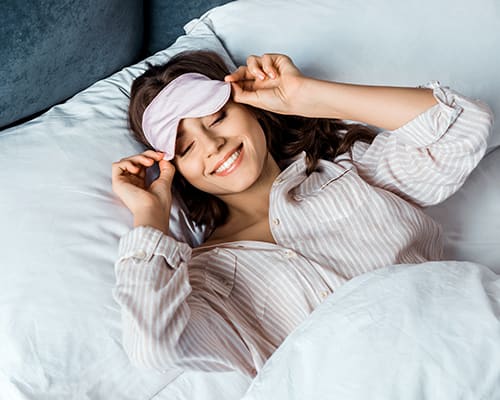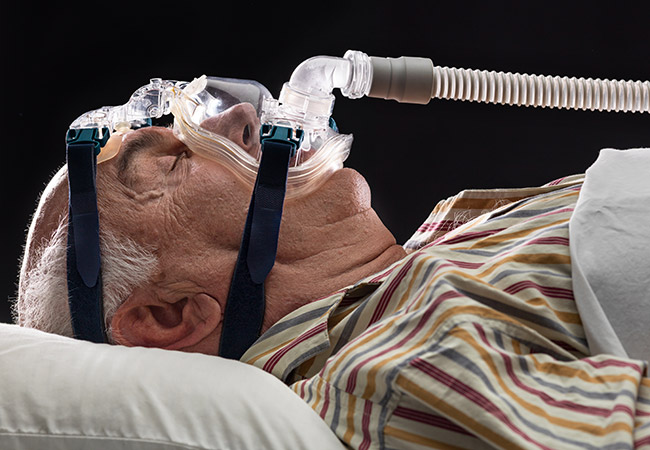Effective Treatment Solutions for Handling Rest Disorders and Enhancing Relaxing Sleep
In the world of healthcare, the monitoring of sleep conditions and the pursuit for relaxed rest are critical components of overall well-being. As we navigate the detailed landscape of sleep conditions and seek to boost our sleep experience, a much deeper understanding of these therapy remedies may hold the secret to opening a more refreshing and meeting corrective trip.
Cognitive Behavior Modification for Sleep Problems (CBT-I)
Cognitive Behavior Modification for Insomnia (CBT-I) is a structured, evidence-based treatment technique that concentrates on addressing the underlying aspects adding to rest disruptions. This kind of therapy aims to modify behaviors and thoughts that intensify sleeplessness, inevitably promoting healthy and balanced rest patterns. CBT-I typically involves a number of crucial parts, consisting of cognitive treatment, sleep restriction, stimulus control, and rest health education and learning.
Cognitive treatment assists individuals recognize and alter adverse thought patterns and ideas about sleep that might be hindering their ability to drop or stay asleep. Sleep constraint entails restricting the amount of time spent in bed to match the individual's real sleep duration, thereby enhancing sleep effectiveness (insomnia therapy). Stimulus control techniques assist develop a strong organization between the bed and sleep by urging people to go to bed just when drowsy and to prevent participating in boosting tasks in bed
In addition, sleep health education concentrates on creating healthy rest habits, such as maintaining a regular sleep routine, producing a relaxing bedtime regimen, and optimizing the rest atmosphere. By dealing with these factors thoroughly, CBT-I provides a reliable non-pharmacological intervention for taking care of sleeplessness and improving total sleep high quality.
Sleep Health Practices
Having actually established the structure of cognitive restructuring and behavioral alterations in dealing with sleep problems through Cognitive Behavioral Therapy for Sleeplessness (CBT-I), the emphasis currently shifts towards discovering important Sleep Health Practices for preserving optimum sleep top quality and overall well-being.
Rest hygiene methods incorporate a range of behaviors and environmental elements that can dramatically impact one's capacity to go to sleep and stay asleep throughout the night. Regular rest and wake times, creating a relaxing bedtime routine, and maximizing the sleep setting by keeping it dark, quiet, and cool are critical components of great rest health. Restricting direct exposure to screens before bedtime, staying clear of stimulants like high levels of caffeine near bedtime, and participating in routine physical task throughout the day can additionally promote better sleep high quality.
Moreover, exercising leisure methods such as deep breathing exercises or reflection before bed can assist soothe the mind and prepare the body for sleep. By including these sleep health practices right into one's daily routine, people can establish a healthy rest pattern that sustains peaceful sleep and total wellness.
Relaxation Techniques and Mindfulness
Applying leisure methods and mindfulness techniques can play a pivotal duty in cultivating a feeling of calmness and promoting quality rest. Furthermore, led images can assist deliver individuals to a calm area in their minds, assisting in stress reduction and enhancing rest high quality.
By including these practices right into a going to bed routine, individuals can indicate to their bodies that it is time to relax and prepare for rest. Generally, integrating leisure strategies and mindfulness practices can considerably add to taking care of sleep conditions and enhancing total sleep top quality.

Medicine Options for Rest Disorders
After exploring relaxation strategies and mindfulness techniques as non-pharmacological interventions for enhancing sleep top quality, it is necessary to take into consideration medicine options for individuals with sleep conditions. In situations where way of life adjustments and therapy do not supply enough alleviation, medicine can be a useful device in managing sleep disturbances.
Commonly recommended medicines for sleep conditions consist of benzodiazepines, non-benzodiazepine hypnotics, antidepressants, and melatonin receptor agonists. Benzodiazepines, such as diazepam, are sedatives that can help generate sleep, however they are normally advised for temporary usage because of the risk of reliance. Non-benzodiazepine hypnotics like zolpidem are also used to deal with sleeplessness and have a reduced danger of reliance compared to benzodiazepines. Antidepressants, such as trazodone, can be valuable for people with co-occurring clinical depression and rest disturbances. Melatonin receptor agonists, like ramelteon, target the body's natural sleep-wake cycle and can be practical for controling sleep patterns.
It is crucial for individuals to seek advice from a healthcare copyright to identify the most ideal medicine option based upon their specific rest disorder and case history.
Light Treatment for Body Clock Regulation
Light treatment, likewise referred to as photo-therapy, is a non-invasive treatment approach utilized to manage circadian rhythms and boost sleep-wake cycles. This treatment includes direct exposure to bright light that resembles natural sunshine, which helps to reset the body's internal clock. By subjecting people to specific wavelengths of light, typically continue reading this in the early morning or evening depending on the preferred result, light treatment can successfully readjust the circadian rhythm to advertise wakefulness during the day and boost relaxing rest during the night.
Research study has shown that light treatment can be specifically beneficial for individuals with circadian rhythm problems, such as postponed sleep stage syndrome or jet lag. It can also be handy for those experiencing seasonal affective condition (SAD), a sort of anxiety that usually occurs during the winter season when natural light exposure is lowered. Light treatment is generally well-tolerated and can be used in combination with various other therapy techniques for rest conditions to maximize results and enhance total rest top quality.
Conclusion
Finally, effective treatment services for handling sleep problems and improving relaxing sleep consist of Cognitive Behavioral Therapy for Sleep Problems (CBT-I), rest health techniques, leisure methods and mindfulness, medicine alternatives, and light treatment for circadian rhythm policy. These methods can help people enhance their sleep high quality and overall wellness. It click is necessary to speak with a doctor to identify one of the most suitable technique for dealing with sleep concerns.
As we browse the elaborate landscape of sleep disorders and look for to improve our rest experience, a much deeper understanding of these therapy remedies may hold the trick to unlocking an extra rejuvenating and satisfying restorative trip.
Sleep constraint involves restricting the amount of time invested in bed to match the person's real sleep duration, consequently boosting rest effectiveness. Regular sleep and wake times, producing a relaxing going to bed routine, and enhancing the rest environment by maintaining it dark, silent, and cool are critical elements of great sleep health. Light therapy is typically well-tolerated and can be used in conjunction with other treatment approaches for rest problems to maximize outcomes and enhance general rest high quality.
